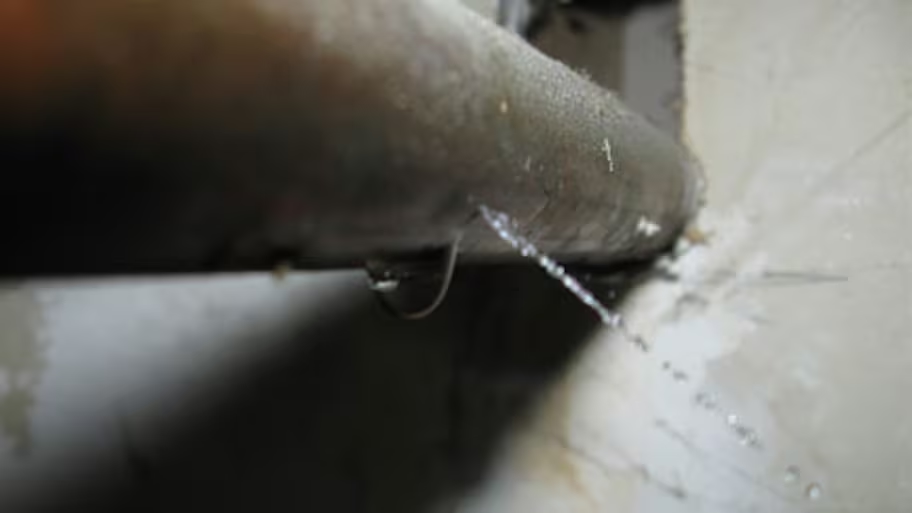Learn About the Key Causes Behind Water Leakage in Your House
Learn About the Key Causes Behind Water Leakage in Your House
Blog Article
What're your thoughts about How to detect water leaks in your home?

Leakages not only trigger waste of water but can also create unneeded damages to your home as well as advertise undesirable organic growth. By looking and understanding for day-to-day circumstances that create leakages, you can protect your house from future leaks and unnecessary damage.
Intruding roots
A lot of water leakages begin outside your home rather than inside it. If you see a sudden decrease in water stress, claim in your faucet, take some time to go out as well as analyze your lawn. You could see damp spots or sinkholes in your backyard, which could imply that tree origins are invading water lines causing water to permeate out. You can have your plumber check for invasion, especially if you have trees or shrubs near your property.
Corroded water systems
As time passes by, your plumbing system ages and also deterioration such as corrosion may start gnawing the pipes. This might be the source of discoloration or bending on your pipes. This asks for an assessment with your plumber right away. Think about replacing the pipelines given that they are at a greater danger of corrosion than the more recent designs if our plumbing system is old.
Faulty Pipeline Joints
Pipeline joints can deteriorate over time, resulting in water leakages. If you have loud pipes that make ticking or banging noises, especially when the hot water is transformed on, your pipeline joints are probably under a lot of stress.
Instant temperature level changes.
Severe temperature level adjustments in our pipes can cause them to expand and also acquire suddenly. This growth as well as tightening may create splits in the pipelines, especially if the temperature level are below freezing. If you kept an eye on how your plumbing functions, it would certainly be best. The presence of the previously mentioned situations frequently indicates a high danger.
Poor Water Connectors
At times, a leak can be brought on by loose hoses as well as pipelines that supply your appliances. Typically, shifting is what triggers the loose water Links. You could find when it comes to a washing device, a hose may spring a leak because of drinking during the spin cycle. In case of a water connections leak, you may notice water running directly from the supply line or puddles around your devices.
Blocked Drains
Blocked drains may be aggravating and inconveniencing, yet they can occasionally end up creating an overflow leading to rupture pipelines. Keep getting rid of any kind of products that may drop your drains pipes that could obstruct them to avoid such hassles.
All the above are sources of leaks yet not all water leakages arise from plumbing leakages; some leaks could originate from roofing system leaks. All leakages ought to be repaired promptly to stay clear of water damages.
Leakages not just trigger waste of water but can likewise trigger unnecessary damage to your home and also advertise unwanted organic development. By looking as well as understanding for daily situations that trigger leakages, you can secure your residence from future leaks as well as unneeded damage. Today, we will look at 6 leakage causes that might be causing your pipes to trickle.
At times, a leakage can be caused by loose pipes and pipes that provide your devices. In instance of a water links leak, you may discover water running directly from the supply line or pools around your home appliances.
How To Check For Water Leak In Your Home
How To Check for Leaks
The average household's leaks can account for nearly 10,000 gallons of water wasted every year and ten percent of homes have leaks that waste 90 gallons or more per day. Common types of leaks found in the home are worn toilet flappers, dripping faucets, and other leaking valves. These types of leaks are often easy to fix, requiring only a few tools and hardware that can pay for themselves in water savings. Fixing easily corrected household water leaks can save homeowners about 10 percent on their water bills.
To check for leaks in your home, you first need to determine whether you're wasting water and then identify the source of the leak. Here are some tips for finding leaks:
Take a look at your water usage during a colder month, such as January or February. If a family of four exceeds 12,000 gallons per month, there are serious leaks.
Check your water meter before and after a two-hour period when no water is being used. If the meter changes at all, you probably have a leak.
Identify toilet leaks by placing a drop of food coloring in the toilet tank. If any color shows up in the bowl after 10 minutes, you have a leak. (Be sure to flush immediately after the experiment to avoid staining the tank.)
Examine faucet gaskets and pipe fittings for any water on the outside of the pipe to check for surface leaks.
Undetected water leaks can happen without the home or business owner even realizing. If you suspect a water leak, but not able to find the source. It is time to contact a professional water leak detection service, The Leak Doctor.
How To Find a Water Leak In Your Home
https://www.leakdoctor.com/blog/How-To-Check-For-Water-Leak-In-Your-Home_AE197.html

Do you appreciate more info about Common Water Leaks In House? Place feedback directly below. We would be pleased to hear your responses about this piece. We hope that you come back again in the future. Those who liked our page kindly do not forget to pass it around. Thank-you for your time invested reading it.
Immediate attention? Phone us! Report this page